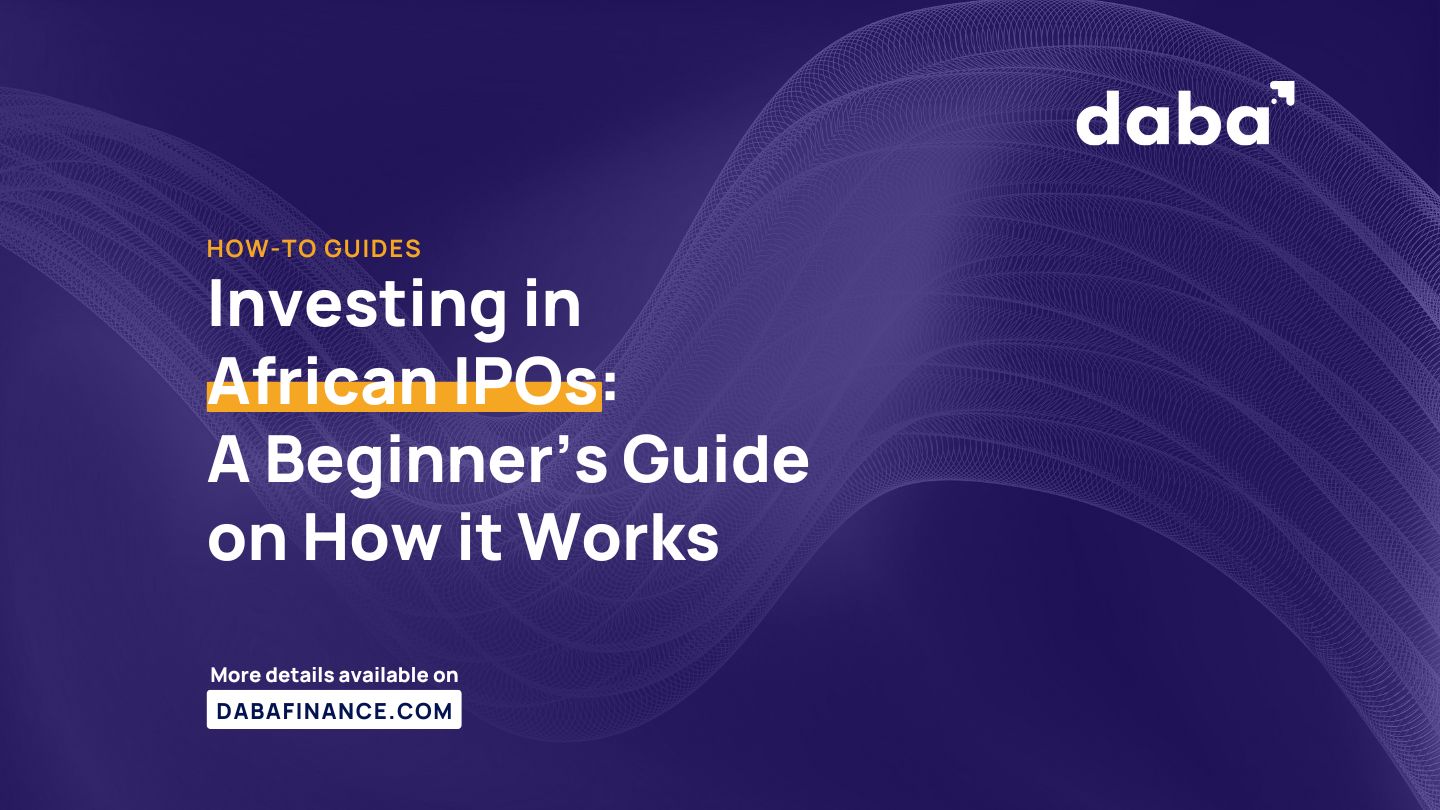IPOs are a great way to invest early in promising companies. As a Daba user, you can easily access and analyze such opportunities across Africa.
Investing in an Initial Public Offering (IPO) can be one of the most exciting opportunities in the stock market.
It’s the moment when a private company goes public, offering its shares for the first time to investors on a stock exchange.
If you’ve ever wanted to invest in a company early and potentially benefit from its future growth, understanding IPOs is crucial.
In this guide, we’ll break down IPOs step by step, making it simple for you as an investor—especially if you’re using Daba to access IPOs on African stock markets like the BRVM.
What is an IPO?
An IPO (Initial Public Offering) is when a private company sells its shares to the public for the first time. This allows the company to raise capital to expand its business while giving investors the chance to own a piece of the company.
Once the IPO is complete, the company becomes publicly traded on a stock exchange, and its shares can be bought and sold like any other stock.
Examples of Marquee African IPOs and Performance
1. Orange Côte d’Ivoire (December 2022): Orange Côte d’Ivoire, a leading telecommunications operator in Ivory Coast, completed its IPO on December 30, 2022, raising approximately 141 billion CFA francs ($228 million).
The shares were listed on the Bourse Régionale des Valeurs Mobilières (BRVM). Since its listing, the stock has demonstrated strong performance. The share price had increased by more than 70% since the IPO.
2. Boxer (November 2024): Boxer, a South African discount grocery retailer and subsidiary of Pick n Pay, debuted on the Johannesburg Stock Exchange on November 28, 2024.
The IPO involved selling a 34.4% stake, raising 8.5 billion rand ($471 million). On its first day of trading, Boxer’s shares rose by 16%, reflecting strong investor confidence.
3. Talabat (December 2024): Talabat, a Middle East-based food delivery company and part of Germany’s Delivery Hero, conducted an IPO in December 2024, raising $2 billion.
The shares were priced at Dh1.60 each, equating to a market value of approximately Dh37.3 billion ($10.1 billion). This IPO is set to list on the Dubai Financial Market. The IPO was significantly oversubscribed, indicating strong demand from investors.
These IPOs highlight the growing investor interest and confidence in African and Middle Eastern markets.
How Does an IPO Work? (Step by Step)
Step 1: The Company Prepares for an IPO
Before a company can go public, it must meet several regulatory and financial requirements. This includes:
- Hiring investment banks to manage the IPO process.
- Filing paperwork with the stock exchange and regulators.
- Determining the valuation (how much the company is worth).
- Setting an IPO price range based on demand.
For example, if a large telecom company in Côte d’Ivoire wants to list on the BRVM, it must follow strict financial disclosures and approvals before offering shares to investors.
Step 2: The IPO Subscription Period
Before the IPO officially launches, the company allows investors to subscribe to buy shares at the pre-determined IPO price.
As a Daba user, you can access IPOs directly on the mobile platform, where you’ll see:
- The company details and why it’s going public.
- The IPO price and number of shares available.
- The subscription deadline (the period to apply for shares).
You can apply for shares using your Daba account before the IPO closes.
Step 3: IPO Launch and Market Debut
Once the subscription period ends, the company’s shares are listed on the stock exchange, and trading begins.
If demand for the stock is high, the price may increase immediately after listing, giving early investors a potential gain. However, stock prices can also fluctuate based on market conditions.
Step 4: What Happens After the IPO?
Once the stock is live, you have two options as an investor:
- Hold your shares and wait for long-term growth.
- Sell your shares if the price rises quickly and you want to take profits.
On Daba, you can track the stock’s performance, read financial updates, and decide your next move.
Why Invest in IPOs?
- Early Growth Potential – Buying at IPO prices can give investors a head start if the stock rises.
- Access to High-Growth Companies – Many successful companies were once IPOs (e.g., Orange Côte d’Ivoire).
- Portfolio Diversification – Adding IPO stocks can balance your investment portfolio.
What Happens After I Invest in an IPO on Daba?
Allocation & Confirmation – After the IPO subscription period ends, shares are allocated based on demand. You’ll receive confirmation of your allocation.
Listing & Trading – Once the IPO is officially listed on the exchange, the stock becomes tradable, and you can monitor its performance in your Daba portfolio.
Post-IPO Performance – You can choose to hold your shares long-term, sell them based on market conditions, or reinvest your gains. Daba provides insights and updates to help you make informed decisions.
Final Thoughts
IPOs are a great way to invest early in promising companies, but they come with risks. Prices can be volatile, and not all IPOs perform well.
As a Daba user, you can access IPOs across Africa easily, analyze opportunities, and make informed investment decisions.
Want to explore the latest IPOs?
Sign up on Daba today and start investing in Africa’s most exciting companies!

Leave a Reply